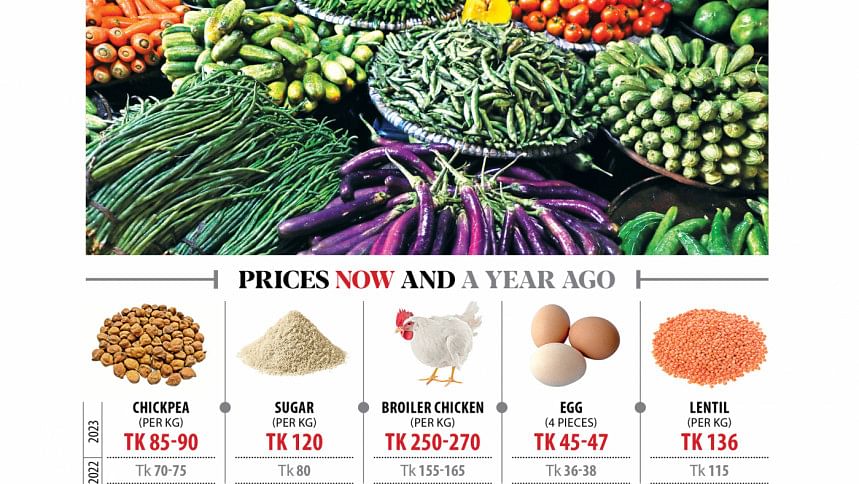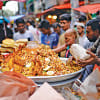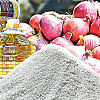Low-Income People: Decent meal a luxury this Ramadan

Taking Tk 300 from her rickshaw-puller husband, Moni Begum went to Mirpur-11 kitchen market in the capital yesterday in the hope of buying some good food for her three children to eat on the first day of Ramadan.
But her heart sank as she entered the market and found that the prices of groceries and other essential items have already increased.
Since she cannot afford to buy a whole chicken, she bought 250-gram dressed chicken at Tk 110, 1 kg potato at Tk 20 and 250 ml oil at Tk 30.
"I will store the chicken in a neighbour's fridge and cook it on the first day of Ramadan. My children will like it because we only ate vegetables and dal [lentil] throughout the month," said Moni, who earns Tk 4,000 by cleaning the stairway of a five-story building in her neighbourhood.
Her husband Ibrahim earns Tk 600 to Tk 700 a day. But the two of them struggle to make ends meet after paying the rent and for the schooling of their three children.
"Buying beef, fish, milk and fruits is out of the question with our earnings," she said, adding that she has already been compromising on the quantity and quality of food.
But putting food on the table will be a challenge during Ramadan.
"Last year, the situation was not so bad. But this year, the prices of essentials have gone beyond our reach," she said.
Every year, the prices of essentials invariably rise ahead of Ramadan. But this time, the impact of the Russia-Ukraine war on the market is making it worse.
Importing and shipping now cost more while the taka lost more than 22 percent of its value against the dollar. The prices of almost all food and non-food items have increased over the last year.
In February, food inflation was 8.13 percent and non-food inflation was 9.82 percent, according to the Bangladesh Bureau of Statistics. A year earlier, the food inflation was 6.22 percent and non-food inflation 6.10 percent.
According to the Trading Corporation of Bangladesh, sugar was Tk 80 a kg just before Ramadan last year; now it's Tk 115 to Tk 120. The price of chickpeas rose from Tk 70 to Tk 85-90 a kg and lentils from Tk 95-100 to Tk 135-140.
The price of dates rose by 26 percent, eggs by 24.32 percent, broiler chicken by 62.5 percent and beef by 8.89 percent.
"You cannot name a single product that doesn't cost more. You will not get any vegetable other than green papaya for less than Tk 50. How will people survive?" said Masud Reza, a resident of Mohammadpur.
The price of aubergine drastically increased over the last week: each kg now costs Tk 100-120 depending on the variety, up from Tk 60-80.
The aubergine prices went up because the demand shot up ahead of Ramadan, said vegetable sellers in Karwan Bazar, one of the largest wholesale markets in Dhaka.
A kg of beef now costs Tk 750-800 and mutton Tk 1,100-1,150.
People are now buying less compared to previous years because of the significant reduction in their purchasing power due to inflation, according to the sellers.
"Compared to last Ramadan, my sales have halved," said Babul Mia, owner of Amin General Store at Karwan Bazar.
Some people said they were spending their savings to make ends meet.
Abu Hanif, a fish seller in Kathalbagan, said he earlier saved Tk 2,000 for Ramadan and spent the money yesterday to buy broiler chicken, fish, onion, potato and palm oil from Karwan Bazar.
"Had I not saved, it would have been difficult for me to buy these," he said.

 For all latest news, follow The Daily Star's Google News channel.
For all latest news, follow The Daily Star's Google News channel. 








Comments